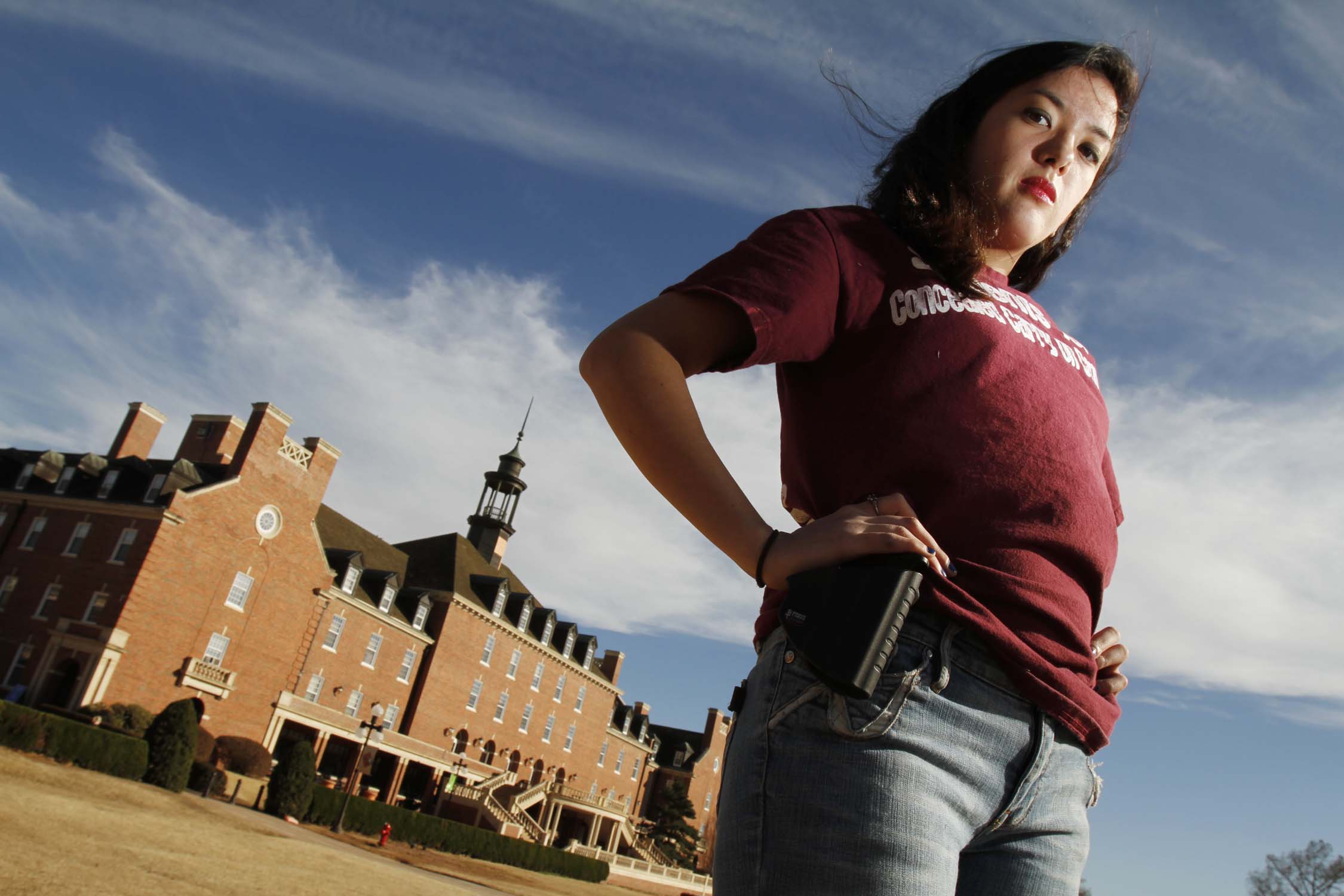Public outrage over campus carry legislation has so far focused mostly on the potential for accidental shootings — the worrisome formula of keg party plus gun — and scenarios where the presence of firearms might adversely influence intense classroom discussion. But some researchers and faculty members are flagging what they worry could be another deadly side effect of more firearms on college grounds.
“I think that youth suicide is often a forgotten aspect of this debate,” Jon Vernick, a co-director of the Center for Gun Policy and Research at Johns Hopkins University, tells The Trace.
On August 1, Texas will become the eighth state to allow students who are legally eligible to own guns to carry concealed firearms on campus property. Next could be Georgia, where Governor Nathan Deal has until May 3 to sign a campus carry bill into law. Several other states, including Alaska and Missouri, are considering similar measures.
Because campus carry is a relatively new phenomenon — Utah passed the first such law in 2004 — there is no substantive research evaluating the policy’s influence on suicide rates. But experts say that shouldn’t discount their concerns: More than 1,000 suicides occur on college campuses every year in the United States, and one in every 10 students has made a plan for killing themselves. The majority of suicide attempts use poisoning or overdose, and result in a fatality only 2 percent of the time. Firearm suicides, however, result in a fatality in 85 percent of attempts.
Jeffrey Swanson, a medical sociologist at Duke University, argues that the high lethality of firearms as a means of suicide ought to give policymakers pause, considering how the academic and personal stresses of college can raise the odds of a student attempting to take his or her own life.
“We know that college students are in this zone between adolescence and adulthood, with greatly increased risk factors for suicide including binge drinking and depression,” he says. In short, he believes, guns on college campuses are, “a bad idea. It seems like a no brainer.”
Franci Crepeau-Hobson is a psychology professor at the University of Colorado, Denver, where concealed handguns have been permitted on campus since 2012. “There has been very little discussion about suicide on campus or in the college student population because everything has been framed in the context of the right to bear arms and the right to defend oneself,” she says. “There are some of us screaming from the rooftop that we need to talk about suicide because that’s the bigger problem.” She worries that it will take a high profile incident, or incidents, to change that. “We usually have to wait for something horrible to happen,” she says.
A spokesperson said that the university does not release statistics on student suicides and declined to comment further. Administrators at several other colleges with campus carry policies in place also declined to comment for this story.
Vernick, of Johns Hopkins, says the presence of more firearms on campus extends the risk of suicide beyond just gun owners. (Some colleges with campus carry bar firearms from student housing, or provide special “gun-free” dorms, but others do not offer such carve outs.) He gives the example of a suicidal student who lives in a campus residence where guns are stored — that student, he says, is more likely to use one him or herself than someone who lives on a gun-free campus.
Mark Kaplan, a professor of social welfare at UCLA who has studied suicide extensively, isn’t convinced that campus carry alone could lead to an increase in student suicide rates. He believes that a state’s gun laws are a more important factor to weigh when evaluating a student’s ability to get a gun. One Harvard study found that states where guns were more prevalent experienced higher rates of suicide, while states with lower rates of gun ownership recorded fewer suicides.
“The campus issue is just an extension of the state culture, the state pro-gun culture,” he says. “This is not happening in a vacuum.”
He adds that states with campus carry policies in place already tend to favor weaker gun laws. “These are states that if you’re suicidal and you’re bent on dying by suicide you’re going to do so by a gun,” he says. “That’s the issue really.”
[Photo: Shutterstock]


